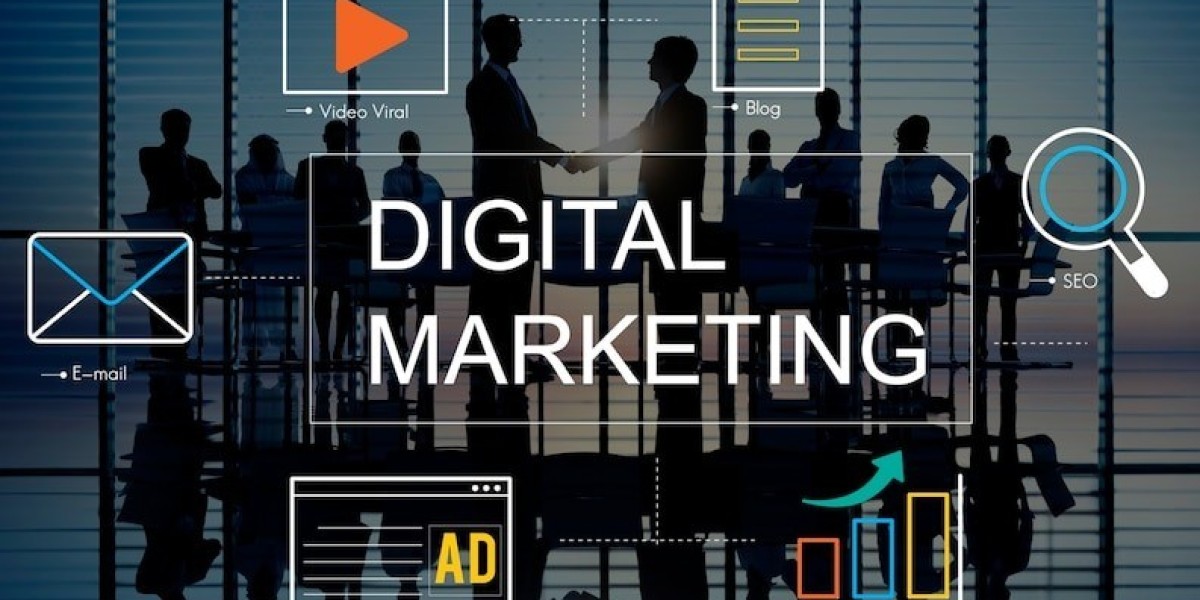In today’s digital landscape, businesses must adapt to an ever-evolving marketplace where traditional marketing methods are no longer sufficient. Internet marketing services have emerged as essential tools for companies seeking to promote their products and services online, engage with their audience, and achieve measurable results. This article explores the various components of internet marketing services, their benefits, and strategies for success.
1. Understanding Internet Marketing Services
Internet marketing services refer to a collection of strategies and tactics employed to promote brands and drive traffic through various online channels. Unlike traditional marketing, which often relies on print media, television, or radio, internet marketing leverages the power of the web to reach a global audience.
These services encompass everything from website optimization and search engine marketing to social media outreach and email campaigns. The goal is to engage potential customers at various stages of their buying journey, ultimately leading to increased conversions and customer loyalty.
2. Key Components of Internet Marketing
2.1 Search Engine Optimization (SEO)
Search Engine Optimization (SEO) is the practice of enhancing a website's visibility in search engine results. This involves optimizing on-page elements, such as content and meta tags, and off-page factors like backlinks. Effective SEO strategies include:
- Keyword Research: Identifying relevant keywords that potential customers are searching for.
- On-Page SEO: Optimizing content, images, and URLs to improve relevance and user experience.
- Technical SEO: Ensuring the website's backend is structured for search engines to crawl and index effectively.
A well-executed SEO strategy can significantly increase organic traffic and improve search engine rankings.
2.2 Pay-Per-Click Advertising (PPC)
Pay-Per-Click (PPC) advertising allows businesses to display ads on search engines and social media platforms. Advertisers pay a fee each time their ad is clicked. Key aspects of PPC include:
- Keyword Selection: Choosing the right keywords to target the intended audience.
- Ad Creation: Crafting compelling ad copy that encourages users to click.
- Landing Page Optimization: Ensuring that the page users land on is relevant and optimized for conversions.
PPC can provide immediate visibility and traffic, making it an effective complement to SEO efforts.
2.3 Social Media Marketing
Social media marketing involves promoting products and services through social media platforms like Facebook, Instagram, Twitter, and LinkedIn. It includes:
- Content Creation: Developing engaging content that resonates with the target audience.
- Community Engagement: Interacting with followers and responding to comments to build relationships.
- Advertising: Utilizing paid ads on social media to reach a broader audience.
Social media marketing enhances brand awareness and drives traffic, while fostering customer engagement.
2.4 Content Marketing
Content marketing focuses on creating valuable and relevant content to attract and retain a target audience. This includes blog posts, articles, videos, infographics, and podcasts. Essential strategies include:
- Quality Content: Producing high-quality, informative, and engaging content that addresses customer needs.
- Distribution: Sharing content across various platforms to maximize reach.
- Consistency: Maintaining a regular publishing schedule to keep the audience engaged.
Effective content marketing establishes authority and trust, ultimately guiding prospects through the sales funnel.
2.5 Email Marketing
Email marketing involves sending targeted messages to a list of subscribers. It remains one of the most effective forms of online marketing. Key components include:
- Segmentation: Dividing the email list into specific groups based on demographics, behavior, or interests.
- Personalization: Crafting personalized emails that resonate with individual recipients.
- Automation: Using email marketing tools to automate campaigns and follow-ups.
Email marketing drives conversions by nurturing leads and keeping customers informed about products and promotions.
2.6 Affiliate Marketing
Affiliate marketing involves partnering with affiliates to promote products or services in exchange for a commission on sales generated. This strategy includes:
- Affiliate Recruitment: Finding and onboarding individuals or companies to promote your brand.
- Commission Structure: Defining how affiliates will be compensated for their efforts.
- Tracking Performance: Utilizing tracking tools to monitor affiliate performance and optimize campaigns.
Affiliate marketing expands reach and taps into new audiences through trusted promoters.
3. The Importance of Analytics and Tracking
Data analytics play a crucial role in internet marketing services. Tracking user behavior, campaign performance, and conversion rates allows businesses to make informed decisions. Key analytics tools include:
- Google Analytics: Provides insights into website traffic, user behavior, and conversion rates.
- Social Media Analytics: Offers data on engagement, reach, and demographics for social media campaigns.
- Email Marketing Metrics: Tracks open rates, click-through rates, and conversions for email campaigns.
By analyzing data, businesses can refine their marketing strategies, optimize campaigns, and achieve better results.
4. Benefits of Internet Marketing Services
Investing in internet marketing services offers numerous advantages:
- Cost-Effectiveness: Online marketing is often more affordable than traditional advertising methods, providing a better return on investment (ROI).
- Targeted Reach: Internet marketing allows for precise targeting based on demographics, interests, and online behavior, ensuring messages reach the right audience.
- Measurable Results: Analytics provide real-time insights into campaign performance, enabling businesses to adjust strategies for maximum effectiveness.
- Increased Engagement: Interactive online platforms foster greater engagement and communication with customers.
- Brand Awareness: A strong online presence enhances visibility, helping brands stand out in a crowded marketplace.
5. Developing an Effective Internet Marketing Strategy
Creating a successful internet marketing strategy requires careful planning and execution. Here are key steps to consider:
5.1 Defining Your Target Audience
Understanding your target audience is essential for crafting effective marketing messages. Consider factors such as demographics, interests, behaviors, and pain points. Create buyer personas to visualize and understand your audience better.
5.2 Setting Clear Goals and Objectives
Establish specific, measurable, achievable, relevant, and time-bound (SMART) goals for your internet marketing efforts. This could include increasing website traffic, generating leads, or boosting sales. Clear objectives provide direction and facilitate performance measurement.
5.3 Budgeting for Marketing Services
Allocate a budget for your internet marketing activities based on your goals and the channels you plan to use. Consider factors such as advertising costs, software subscriptions, and content creation expenses.
5.4 Choosing the Right Channels
Select the most effective channels for reaching your target audience. This may involve a combination of SEO, PPC, social media, content marketing, and email marketing. A multi-channel approach can maximize visibility and engagement.
6. Challenges in Internet Marketing
While internet marketing services offer significant benefits, businesses may face challenges, including:
- Constantly Changing Algorithms: Search engine and social media algorithms are continuously evolving, requiring ongoing adaptation of strategies.
- Competition: The online marketplace is crowded, making it challenging to stand out among competitors.
- Maintaining Engagement: Keeping audiences engaged over time can be difficult, necessitating fresh and relevant content.
- Data Privacy Regulations: Compliance with data privacy laws, such as GDPR, adds complexity to data collection and marketing practices.
7. Future Trends in Internet Marketing
As technology and consumer behaviors evolve, several trends are shaping the future of internet marketing:
7.1 Personalization
Personalized marketing is gaining prominence as consumers expect tailored experiences. Businesses will increasingly use data to customize content and recommendations, enhancing engagement and conversion rates.
7.2 Voice Search Optimization
With the rise of voice-activated devices, optimizing for voice search is becoming essential. Marketers must adapt their SEO strategies to include conversational keywords and phrases.
7.3 Video Marketing
Video content continues to dominate online engagement. Incorporating videos into marketing strategies—whether through social media, webinars, or explainer videos—can enhance brand storytelling and capture audience attention.
7.4 Artificial Intelligence
AI technologies are transforming internet marketing by automating tasks, providing insights, and enhancing customer interactions through chatbots and personalized recommendations.
8. Conclusion
Internet marketing services have become indispensable for businesses aiming to thrive in the digital landscape. By understanding the key components of internet marketing, leveraging data analytics, and developing effective strategies, companies can effectively reach and engage their target audiences. As the digital world continues to evolve, staying ahead of trends and adapting to new technologies will be crucial for success. Embracing internet marketing services is not just an option; it's a necessity for any business seeking to grow and compete in today's marketplace.



